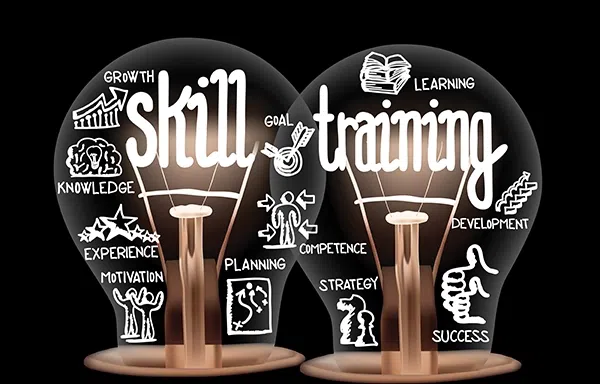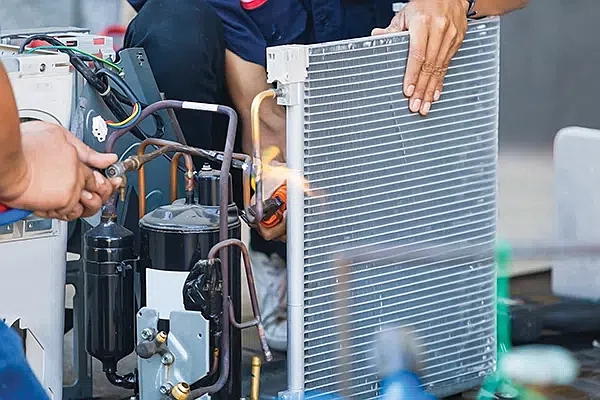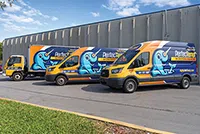Owners and managers of HVACR companies know that staying successful means having well-trained workforces with the most up-to-date knowledge to meet customers’ needs. Similarly, they’re often looking to hire more technicians to cope with labor shortages. In such cases, they want assurance that candidates have received a high standard of training and education.
Following are some of the main reasons why decision-makers at HVACR businesses need to know what to look for in technician training programs.
In-Depth Content and Overall Quality
The content and overall quality of the material are some of the top factors to evaluate in an education program for HVACR technicians. You should request to review curriculum samples or even observe a class in session to get a better idea of what and how students learn and how they’re exposed to the material.
Many HVACR technician courses also offer online content. These programs are convenient allowing students more flexibility and reducing the travel burden associated with enrolling in a traditional training program. Trevor Matthews is one example of an HVACR training specialist who practices in the virtual realm. He has offered courses in his Refrigeration Mentor program since September 2021. There, they focus on HVAC and carbon dioxide refrigeration for supermarket systems.
Matthews admitted to experiencing initial challenges with developing and teaching content intended for students who attend class virtually. However, he took the time to explore options and see what worked to keep online student engagement high.
It’s also a good idea to research course providers and individuals to learn about their backgrounds and experience. If the instructors have longstanding and reliable reputations, they’re more likely to have professional approaches and teach students the practical information they need to apply throughout their careers. The same is true for the companies offering the courses. People evaluating their options should prioritize accredited programs over non-accredited cheaper alternatives because any reputable employer will require education that meets certain criteria set by the accreditors.
Real-World Training to Meet Modern HVACR Expectations
It’s not enough that students get accurate information from a program’s content. The material should also prepare trainees to engage with future business and residential customers about the things that matter most to those clients.
For example, a well-ventilated workplace can save energy and enhance indoor air quality. Some clients will also need breathable compressed air systems for employees engaging in activities like sandblasting or applying finishes. Someone who completes an HVACR tech training program should be well-equipped to recommend products to meet clients’ specific needs. That’s true whether the goal is to remove indoor contaminants or to improve employees’ indoor air quality at work.
Any worthwhile HVACR tech training program should also cover consumer options that include smart functionality. Besides adding convenience providing added convenience, smart appliances and devices can increase a home’s value, making it more attractive once on the market. Well-trained HVACR technicians should be able to identify the advantages of using such devices such as how a person can “eco-set” a smart air conditioner or heater to save the most energy and/or learn how to control it remotely.
HVACR company leaders assessing tech training programs should ask themselves if the lessons learned will give students the real-world industry knowledge, they need to become trustworthy resources for their customers, whether they plan to work in the commercial or residential sectors. Content material should have its finger on the pulse of the industry and should track trends and progress. Chosen well, a graduate can then finish a course and feel capable of discussing applicable matters with customers upon graduation. A new hire’s ability to engage in such relevant discussions directly after training and graduation will reflect well upon the company and its CEO.
Hands-On Experience, Prerequisites & Outcomes
It is important to check that potential training programs for HVACR technicians blend book-based learning and lectures with hands-on experience. Students will then likely be able to matriculate what they’ve learned into the workplace and feel more confident when applying those skills in the real world.
It’s also necessary to evaluate the prerequisites for acceptance into these training programs. Some courses accept people with no previous experience. Other HVACR tech training providers include specific high-risk groups in their recruitment process, such as previously incarcerated persons and military veterans. These programs are often well supported by the community and philanthropists because they aim to create brighter futures for individuals who may otherwise have difficulty finding employment in the wider job market.
Some training programs also offer graduates the promise of industry-recognized certifications or guaranteed jobs after completion. One trade-skills apprentice offering at the University of Virginia lets students work on campus after they finish the four-year program. A current participant in the HVACR division said he liked how the work let him sharpen his problem-solving skills. Before becoming a student, he helped an HVAC technician in his local community while still a teenager.
Participants will be more likely to take part if they can recognize associated benefits that help them visualize future careers. Many people are ready for career changes but aren’t sure how to make the transition. An HVACR technician training program that removes perceived barriers and provides students with enticing rewards, will have a better chance of delivering.
Consider Creating a Training Program with Key Components
There are some common denominators when reviewing the top characteristics of the most reputable HVACR tech training programs. Company owners who are familiar with these and know how to recognize the top components might endeavor to create their own programs.
While it is a major undertaking, it may help company representatives to increase their impact on the industry and the community at large. When they take the reins to have a direct influence on how and what students learn, it’s easier to ensure that the new employees will acquire the necessary skills to succeed in the industry. This not only helps companies and employees but has a greater macro-impact on the industry.
Launching an educational initiative is also an excellent way for an HVACR company to increase profitability. Once the program model is established, the CEOs and decision-makers should plan the most appropriate ways to market the program. This might include budgeting and planning social media campaigns, partnering with local high schools, and holding an open meet and greet events for prospective students.
A robust HVACR training program can prepare participants for rewarding, stable, and financially appealing careers. Educational options like this set students up for long-term success in the HVACR industry, and over time, attract even more candidates to the trade, some of whom may have never considered it as an option.






